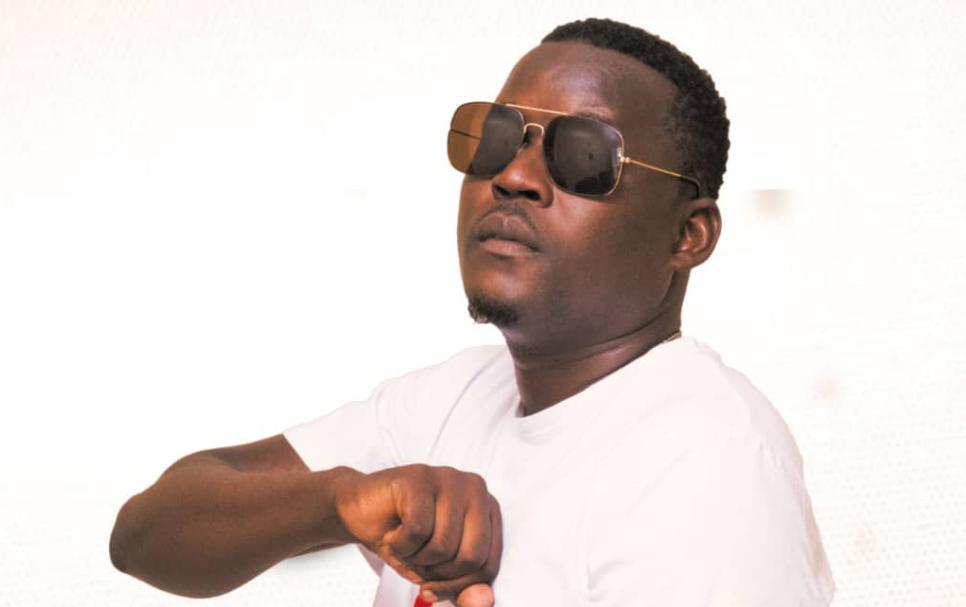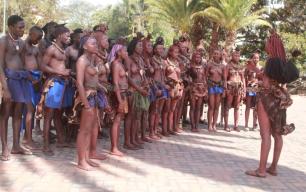Desh Wakit: Keeping kwaito spirit alive

By Hilja Shikongo
Born and raised in the streets of Oshakati West, Leandro Shilongo, widely known as Desh Wakit, has become one of Namibia’s most influential music producers and songwriters. From the early days of dancing to the beats of Kwaito legends to producing hit tracks for major artists, his journey is a testament to passion, perseverance, and the love for music.
“I was born and raised in the streets of Oshakati West, 1991,” Desh Wakit shares. “My first encounter with the sounds of Kwaito was in the early 2000s, listening to the late Brenda Fassie, Atama Fokate, i fell in love with the sound. I even had a dancing group called Sweet Jive.”
Deshua’s interest in music production started in 2005 when he discovered Fruity Loops software, thanks to friends . “I started producing back then, and since I already had the whole touch of Kwaito and knew the culture, I naturally gravitated towards producing Kwaito music,” he explains.
Oshakati West, he notes, was a unique hub for music lovers. “Everybody knows that the original Kwaito Kasi flavor originated from South Africa. But in Oshakati West, it was influenced by truck drivers coming from Joburg. We used to stand around while they offloaded, listening to music. That’s how we fell in love with the culture.”
Desh Wakit’s career also intertwined with other local stars. “I actually grew up with Exit. We are from the same location. I started producing for major artists and some of the big hit songs that came out of Oshakati.” Despite his behind-the-scenes role as a producer, he recalls the challenges of marketing and exposure. “Our songs didn’t get that exposure, but we still managed to build a fan base.”
In 2013, a move to Windhoek to attend vocational training exposed him to new studio techniques. “I went to sit in Elvo’s studio and listened to how he was mastering sounds. That really helped me elevate my production game.”
Today, Desh reflects on the evolution of Kwaito. “Kwaito is dying out, but it is not dead. It is just switched up. If you listen to the new Amapiano, you will hear a fusion of Kwaito with more tempo, grooves, and special elements like the lock drum. We modernized the sound with shakers, groovy vibes, and female vocals.”
Looking ahead, Desh Wakit is determined to bring Kwaito back into the spotlight. “My goal is to revive Kwaito and show the youth that it is more than just music it is a culture and a lifestyle. I am working on new projects and mentoring upcoming artists so we can modernize the sound while keeping its original essence. Kwaito will live on, and I want to make sure it resonates with the next generation.”
Yet, his love for classic Kwaito remains strong. “I still love that rough Kwaito sound. If you listen to my 2022 album Marikiki, you can feel the old-school Kwaito in it.” Looking forward, Desh is working on a new long-term album, assisting artists, and continuing to shape the Namibian music scene.
“Kwaito is not just music; it is a culture,” he says passionately. “It is a lifestyle. As long as we are here, Kwaito will live on.”
For fans eager to catch his music, Desh Wakit's work is available on Spotify, iTunes, and YouTube, featuring collaborations with Mabuza, Brabi the Vocalist, Exit Rockaz, and Samuele Ngoji aka Konja.
From Oshakati’s streets to the national stage, Deshua Kate continues to preserve and innovate the Kwaito sound, proving that the genre’s heartbeat is far from fading.
- 29 views










Comments